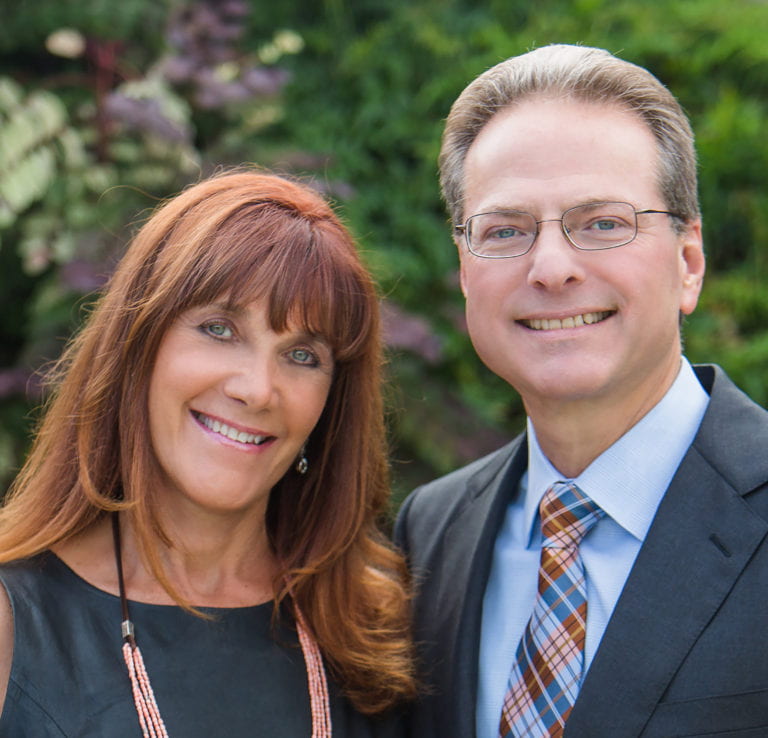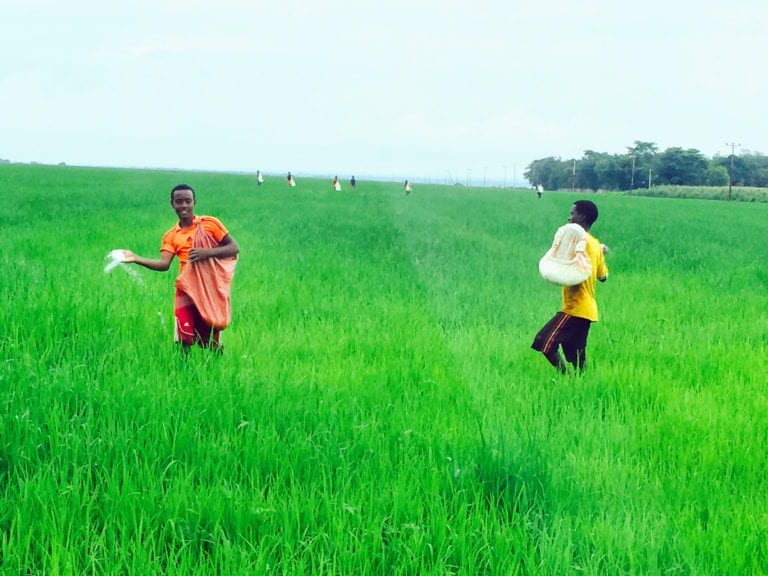May 2017
UCI was founded with the mission to do public good, from educating young minds to engaging in groundbreaking research and community development. When founding Chancellor Daniel G. Aldrich Jr. spoke at UCI’s dedication ceremony in 1964, he said, “Irvine is not conceived as an isolated academia, but as an institution that plays an active role in the transfer of learning and life. … Education is both a means of individual development and of social progress.” More than 50 years have passed, and Chancellor Aldrich’s words continue to ring true.
Recently, UCI was ranked eighth in the nation for best value by Forbes, based on tuition costs, school quality, alumni earnings, student debt and on-time graduation. Our campus also was rated among the “25 Best Public Colleges for Big Paychecks” by Money magazine, which measured alumni earnings against the out-of-pocket costs of university attendance. It’s always flattering to receive rankings like these, not just for the bragging rights, but because they are a reminder that UCI is fulfilling our steadfast commitment to serve the public and be a force for socioeconomic mobility. We hope all of our students and alumni feel passionately about the quality of education at UCI and will share this terrific news with their families and friends.
Convergent science building

As UCI continues to grow, it is vital that we are properly equipped to address a broad range of global challenges, working together on multidisciplinary projects that will have an impact. I am thrilled to announce that this undertaking will be amplified thanks to a transformational $30 million gift from the Samueli Foundation that will help construct a state-of-the-art science and engineering building to bolster collaborative research and discovery across campus. The Samueli donation enabled UCI to obtain $50 million in state funds allocated by the UC Office of the President. An additional $40 million in campus funds brings the total project investment to $120 million.
By fostering cross-disciplinary research, UCI will be able to continue to drive new technologies and enhance our tradition of excellence. Together, the right partners can converge on society’s greatest challenges and address them in extraordinary ways. We are thankful to have generous partners in Susan and Henry Samueli, who share UCI’s and California’s vision of a space facilitating transformative innovations in health, sustainability and other boundary-breaking fields.
Transformative $30 million gift from Samuelis to fund convergent science buildingCombating malaria

Our faculty members are actively pursuing projects that can save lives and improve the quality of life for millions of people around the world. A good example is UCI’s meaningful work on stamping out malaria. The World Health Organization estimated that 212 million new cases of malaria and nearly 430,000 malaria deaths occurred in 2015. Recently, UCI was awarded up to $9.6 million over seven years from the National Institute of Allergy & Infectious Diseases to confront this important public health issue. The funding establishes UCI as one of the NIAID International Centers of Excellence for Malaria Research, a global network of scientists committed to understanding, controlling and preventing the disease. Led by Guiyun Yan, professor of public health, the UCI project will primarily focus on human-induced environmental modifications, such as dam construction and irrigation, and their effects on malaria transmission in Ethiopia and Kenya.
$9.6 million grant fuels UCI malaria control research in AfricaFaculty achievements
UCI is fortunate to have some of the most revered scholars and educators in the world on its faculty. Our professors are not only brilliant experts in their fields, but champions of sharing knowledge and stimulating deep inquiry into new ideas.
James Randerson, a Chancellor’s Professor in the Department of Earth System Science, has been elected to the prestigious National Academy of Sciences in recognition of his important research contributions that have changed our understanding of how humans, ecosystems and the environment relate to climate change. Soon, Chancellor’s Professor Randerson will lead UCI’s Center for Geospatial Data Solutions for Climate & the Environment, where he will investigate ways to tackle environmental problems such as wildfires. With his election, there are now 23 UCI faculty who are members of the National Academy of Sciences.
Jane O. Newman, professor of comparative literature and European languages & studies, was appointed to the National Humanities Center board of trustees and will serve on its public engagement and scholarly programs committees. I’m also pleased to share that the organization awarded a 2017-18 residential fellowship to John H. Smith, a professor of German in the Department of European Languages & Studies, so he can complete his book on the influence of mathematics on German philosophy. He was one of 35 individuals selected for the fellowship from a pool of more than 600 applicants.
Dr. Claudia Kawas, professor of neurobiology & behavior and neurology, was awarded a Potamkin Prize for Research from the American Academy of Neurology for her work in the renowned 90+ Study, one of the largest examinations of the world’s “oldest-old.” She studies factors that lead to longevity as well as ways to prevent or mitigate dementia in more-aged populations. The honor, often referred to as the Nobel Prize of Alzheimer’s research, comes with $100,000.
Engineering students aim high

For students in The Henry Samueli School of Engineering, the sky’s the limit to their success. A $1 million gift from Base 11, a nonprofit STEM workforce development and entrepreneur accelerator, will enable UCI to launch a rocketry programwith the goal of becoming the first university to put a rocket into space. Funding will go toward an on-campus laboratory where students can design, build and test rocket prototypes up to 50 feet long. It also will support a mobile operations center and assembly trailer to transport rockets for testing. Within two years, participants of the program hope to construct a rocket that passes the Karman line, which lies at an altitude of about 328,000 feet. Base 11 has been an ongoing partner of UCI, working with the Samueli School to introduce community college students to aerospace engineering, computer-aided design, and fabrication techniques during the summer.
With $1 million gift, UCI aims to become first university to launch rocket into spaceTechnology, Law & Society Summer Institute
As society becomes increasingly steeped in technology, there is a pressing need to consider the potential legal and social consequences of using big data, smart devices and algorithms in business and our personal lives. With grant funding from the National Science Foundation, School of Social Sciences Dean Bill Maurer is teaming up with criminology, law & society professor Mona Lynch to form the Technology, Law & Society Summer Institute. Professors and graduate students involved in the institute will explore ways in which technology and biases in algorithms, data analytics and mobile computing can cause unintended outcomes. Starting in summer 2018, attendees from around the country will spend a week at UCI for hands-on demos, workshops and presentations centered on addressing this inherent problem of using new technology.
New summer institute at UCI will help scholars tackle tangled legal web of technology, big data and societyGet connected
Spring is an excellent time to discover all UCI has to offer, be it lectures and invited speakers, arts and cultural activities, or sporting events. The Claire Trevor School of the Arts is currently celebrating its monthlong Arts Renaissance, featuring a surge of performances and exhibitions from each of its disciplines. There are still a wide variety of events to take in before the end of the month, including a classical Persian music concert and the M.F.A. thesis art exhibition.
UCI and the surrounding community also are gearing up to raise funds for the Chao Family Comprehensive Cancer Center at the first-ever Anti-Cancer Challenge on June 10 and 11. The event features a range of cycling routes and a 5K walk/run at Angel Stadium of Anaheim to boost UCI’s cancer research and treatment. Last year, the Chao facility, Orange County’s only comprehensive cancer center, served more than 68,000 patients and enrolled 2,600 of them in clinical trials. Cyclists of all ages and skill levels are invited to participate in this worthy cause. You can learn more about how to get involved here.
Inspiring advocacy
While I’ve spent much of this monthly message keeping you apprised of the dynamic research and academic initiatives going on at UCI, I want to take a moment to recognize that much of the work our faculty dedicate their lives to would not be possible without federal support.
Last year, UCI received a record-breaking $395 million in grants and contracts, including $224 million from federal agencies such as the Department of Health & Human Services, the Department of Defense and the Department of Energy. This funding is absolutely crucial to our success as a public research university that drives innovation and economic prosperity in our local community and across the country. The University of California Advocacy Network recently launched a call-to-action campaign to rally support around the essential nature of government-funded research. I also have been working with the Association of American Universities, a prestigious group of 62 research institutions, to fortify support from those who value academic research and its role in advancing technology and innovation. I invite each member of the Anteater family to learn more about what UCI researchers are doing to further public good. I also invite you to consider contacting your representatives to express support for federal investment in research that benefits society in so many ways. Together, we make a world of difference.